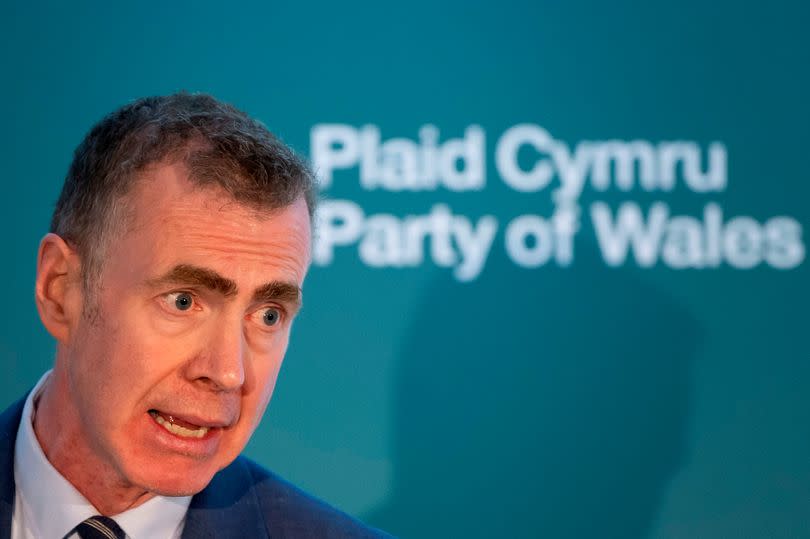Welsh politicians caught lying are to be banned from the Senedd

The Welsh Government has promised to bring in a new law to ban politicians found guilty of "deliberate deception" from the Senedd. Counsel General Mick Antoniw announced the move in the chamber yesterday.
Plaid MS Adam Price had tried to make political lying a criminal offence through an amendment to a bill being discussed in the Senedd. To avoid what could have been a humiliating defeat, the Welsh Government said it would bring through its own legislation.
Mr Antoniw told the chamber that the Welsh Government was proposing an independent judicial process to determine if a politician had deliberately deceived anyone and if so they would be disqualified from being a Senedd Member. He invited a Senedd committee to make proposals for how that could be achieved.
READ MORE: Wales can light a beacon not just for Britain but also the entire world
READ MORE: Dramatic moment Cardiff play area is torched by yobs leaving residents 'fuming'
Mr Price's amendment had been proposed to the Welsh Government's Senedd Cymru (members and elections) bill, the piece of law which included plans to increase diversity in elections and automatic registration for voters, was being debated in the Senedd. Opposition If it had passed, it would have meant any politician found to have lied would be disqualified from being a Senedd member for four years.
Mr Price's amendment was backed by Labour MS Lee Waters, despite the government opposing it.
Mr Price said the announcement by Mr Antoniw that the government would commit to such a ban was "historic". "Our democracy will be the first in the world to introduce a general prohibition on deliberate deception by politicians," he said. Speaking in the Senedd debate on July 2, Mr Price said that "public confidence in our institutions is at our lowest level ever". He said the "shadow of disinformation continues to darken the political discourse".
Labour's Lee Waters spoke in the debate saying there was "consensus" across the chamber that "lying undermines public trust in politics". He said the idea behind the law wasn't just about the people elected to the Senedd but those who wanted to be elected. "Lying cannot become the norm," he said.
He said he acknowledged the view of many of his colleagues that anyone who was lying would be judged by their constituents, and should not be taken to court. "There's no doubt politics in this country has become darker in the last eight years," he said, referencing the length of time he had been in the Senedd.
But concerns were raised that the law was being added as an amendment without enough scrutiny. In a letter to Senedd members, Mr Antoniw said the proposed new crime "presents a radical departure from modern constitutional norms in this country that has the potential to do much more harm than good".
"I worry that the good intentions that lie behind this provision could be abused in that way again here under different political circumstances," he said. He said there had been no consultation with the police or the justice system and it was "irresponsible to legislate on an issue with no understanding of the resource implications".
In the debate, he said he thought parliamentary privilege allowed people to "speak freely without fear from the courts, the wealthy, from vested interests, is a fundamental cornerstone of our democracy". But he said he feared that if the new law was introduced, it could weaken that. "To achieve one objective what you don't do is then undermine your own democratic structure that you need to maintain. You need to preserve that," he told colleagues. For the latest politics news in Wales sign up to our newsletter here.
"I don't think the criminal direction is the way we go, because I think what it does is undermine that parliamentary privilege".
On Monday, the Senedd's standards commissioner, Douglas Bain, had already said he agreed with the government saying the Senedd had processes in place to deal with false statements being made and criminal courts weren't the solution. The bill will return to the Senedd on July 9.

 Yahoo News
Yahoo News 
